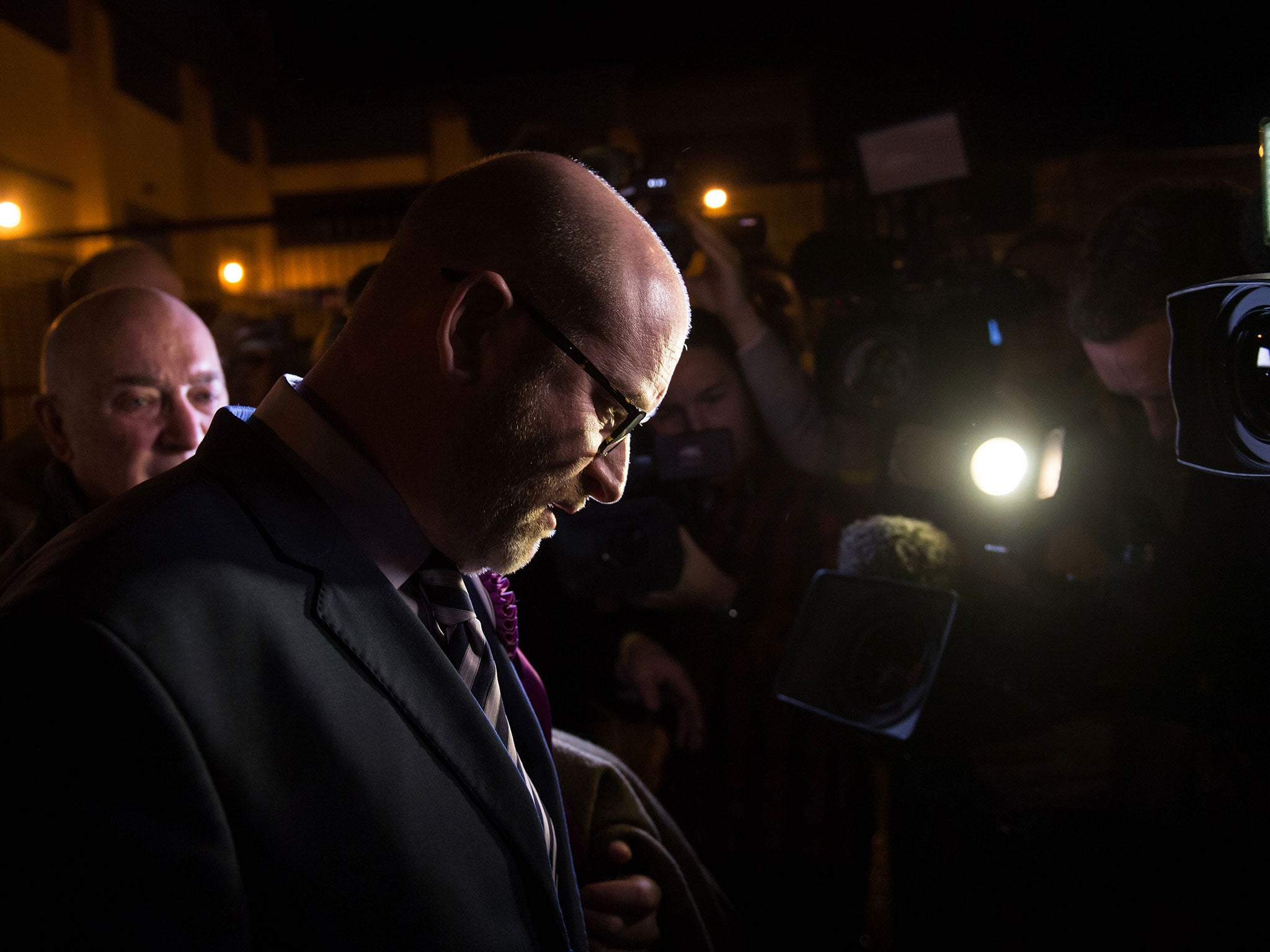Ukip divisions emerge as Nigel Farage says Stoke by-election focus should have been on immigration
Former leader's intervention comes amid questions over Paul Nuttall’s leadership

Ukip’s humiliating defeat in the Stoke-on-Trent Central by-election has reopened divisions, after ex-leader Nigel Farage suggested the party had not focussed enough on immigration in its campaign.
Mr Farage said his successor Paul Nuttall had taken a “risk” in seeking to target Labour voters instead of Tory voters and that the strategy had not paid off.
The theme was echoed by Ukip MEP Bill Etheridge, who said Nuttall had been poorly advised in seeking to take Labour on their ideological territory and called for a more “Farage-ist” approach.
Ukip had seen Stoke, which voted overwhelmingly for Brexit in last year's referendum, as fertile ground for a challenge to Labour in a contest triggered by the resignation of former shadow Education Secretary Tristram Hunt.
But Mr Nuttall’s gamble to stand himself failed to come off as Labour's Gareth Snell held the seat with a majority of 2,620 – raising questions as to whether Ukip can defeat Labour in its traditional heartlands.
After last week warning that the contest was “fundamental” to the party's future prospects, Mr Farage said: “I feel sorry for Paul Nuttall.
“He fought a hard campaign. I think there are some lessons to learn from it in terms of how we campaign, in terms of how we target. There is a debate in Ukip as to how strong we should be on the immigration issue. I personally think we should own it.
“So we will have to look at that and think, were we really tough enough, were we clear enough with the electorate? It has got to be looked at.”

Ukip MEP for the West Midlands Mr Etheridge later said: “Maybe some of Paul’s advisers have led him down a dead end on this. We are all going to back Paul, but hopefully we’ll win the argument for the party to get back to its real roots, of challenging authority and a sort of Farage-ist approach to the future.”
Mr Nuttall’s team in Stoke included Suzanne Evans, Ukip’s head of policy and MEP Patrick O’Flynn, who both fell out with Mr Farage, and former leadership candidate Lisa Duffy, all of whom want a more modern outlook.
Party chairman Paul Oakden said it could be another two decades before the party can take another seat in a by-election.
"Politics is a long game. It took us 23-odd years to win a referendum to get Britain out of the European Union," he said.
"It may take that long for us to get a seat in Westminster via a by-election. But if that's how long it takes then that's what we will keep doing, because that's what we are here for."
Mr Oakden acknowledged Mr Nuttall had endured a “difficult” campaign, in which he had to apologise over a false claim that he lost close friends in the Hillsborough disaster, but said he had the full support of the party.
In Copeland, too, Ukip’s disaster was comparable with Labour’s shock defeat to the Tories. Cumbria is also the sort of area they want to be doing better in, but instead their vote shrivelled from a respectable 15.5 per cent to just 6.5 per cent.
Repeated council by-elections have also seen Ukip councillors defeated. In Brexit-supporting Gloucestershire earlier this month, the Green Party came from nowhere to take a Ukip council seat on the Forest of Dean local authority.
Since the EU referendum wind seems to have been taken out of the party’s sails and polls show a good chunk of voters have turned to Theresa May’s Tories.
Join our commenting forum
Join thought-provoking conversations, follow other Independent readers and see their replies
Comments
Bookmark popover
Removed from bookmarks